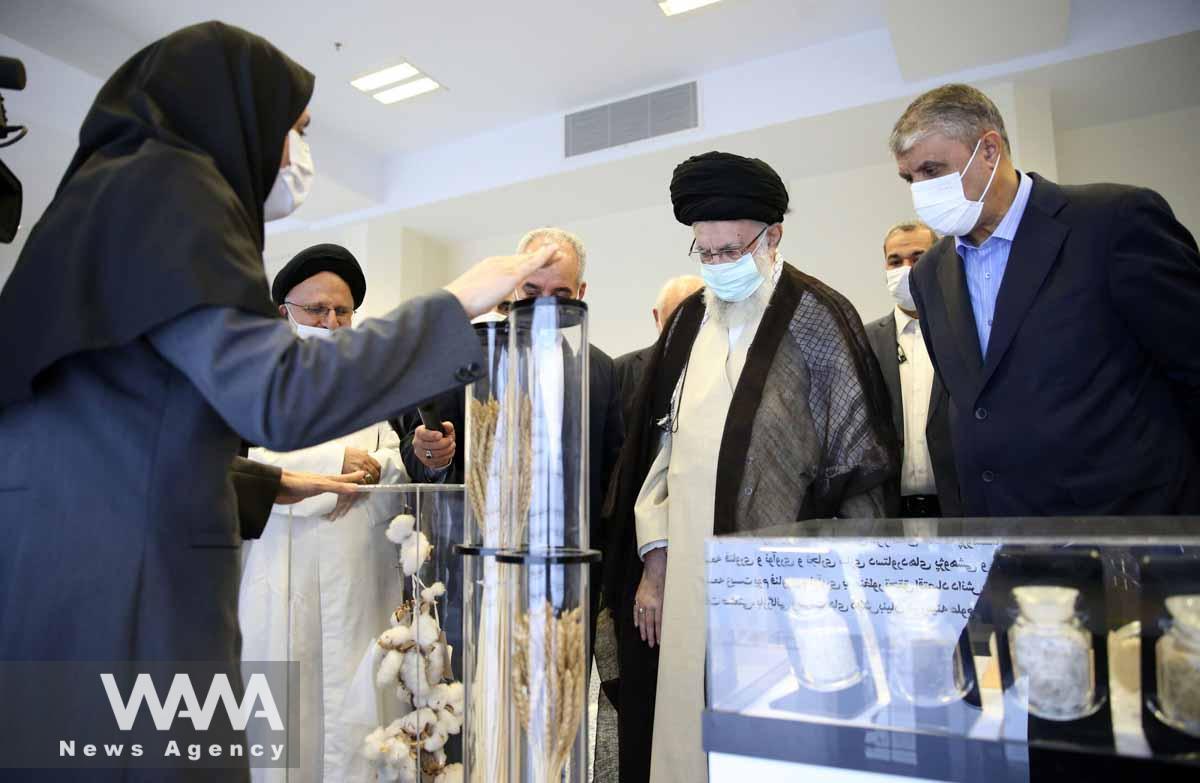Grossi: Iran Does Not Have a Nuclear Weapon
WANA (Apr 06) – The Director General of the International Atomic Energy Agency (IAEA), while repeating political claims about Iran’s peaceful nuclear program, confirmed that despite possessing enriched uranium reserves, Iran does not have a nuclear weapon. Referring to recent communications between Washington and Tehran, he emphasized the need to speed up the resolution of outstanding safeguards issues.
In a televised interview, Rafael Grossi said in response to a question about Iran’s nuclear program: “There are two important points. First, Iran does not have a nuclear weapon today. But it possesses many pieces of the puzzle.”
He added: “Iran has a significant amount of nuclear material. As you know, building a nuclear weapon requires several components, but one of the most critical elements is fissile material — the substance capable of creating a chain reaction. This is the source of a nuclear weapon’s destructive power. This material is enriched uranium — a specific isotope of uranium enriched to a certain level.”
Grossi continued: “Without delving into technical details, our assessment is that Iran currently has enough enriched uranium to produce around six or seven weapons. But again, let me stress — this does not mean Iran has such weapons. Building a weapon requires highly advanced systems and mechanisms, which are the subject of ongoing discussions with Iran.”
Referring to recent correspondence between Washington and Tehran, Grossi stated: “In recent days, President Trump sent a message to Iran’s Supreme Leader. As you know, Iran’s political structure is somewhat unique, with a spiritual leader who holds authority above the official government and the president, and is the final decision-maker.”
He continued: “In that message, Trump mentioned the possibility of negotiations, but also issued warnings — including a two-month timeframe and the possibility of bombing. So I believe we are at a critical juncture and must work toward de-escalation.”
Grossi: “Iran does not have nuclear weapons.”
The Director General of the International Atomic Energy Agency (#IAEA) claimed:
“To avoid any misunderstanding, let me be clear: #Iran does not have nuclear weapons.” pic.twitter.com/04shAupHXQ— WANA News Agency (@WANAIran) April 5, 2025
Grossi said that upon arriving in Buenos Aires, he held a phone conversation with Iranian Foreign Minister Seyed Abbas Araghchi. He stated: “We agreed that I would travel to Tehran in the coming weeks, with the goal of clarifying certain outstanding issues as quickly as possible.”
The IAEA chief described the purpose of his trip as de-escalation, adding: “We must do everything in our power to prevent a confrontation that would undoubtedly be catastrophic.”
These remarks come while Iran has repeatedly emphasized that its nuclear program is entirely peaceful. As a signatory to the Nuclear Non-Proliferation Treaty (NPT), Iran is committed to cooperating with the IAEA. The Islamic Republic has also warned that political pressure and provocative actions by certain countries could negatively impact its technical cooperation with the Agency.
Iran’s peaceful nuclear program has long been under political pressure and unfounded accusations by the West. Before the JCPOA agreement, Western countries attempted to securitize the issue and exert pressure through sanctions and military threats. However, the closure of the “Possible Military Dimensions” (PMD) file in 2015 removed that pretext.
Following the JCPOA, Iran fully adhered to its commitments, but in 2018 the United States unilaterally withdrew from the agreement, and Europe also failed to meet its obligations. As a result, Iran gradually reduced its commitments within the legal framework of the JCPOA. Efforts to revive the agreement stalled due to Western delay and excessive demands.
Nevertheless, Iran has continued diplomatic engagement and cooperation with the IAEA, reiterating that if the other parties return to their commitments, it is ready to restore the agreement. Recent negotiations with the European troika in Geneva and trilateral talks in Beijing demonstrate Tehran’s willingness to resolve the matter diplomatically — provided there are real guarantees for lifting sanctions.

Iran’s Supreme Leader Ayatollah Ali Khamenei visits the Iran nuclear achievements in Tehran, Iran June 11, 2023. Office of the Iranian Supreme Leader/WANA (West Asia News Agency)
Iran has repeatedly stated that it is prepared to reach a reliable and sustainable agreement that guarantees the lifting of sanctions and prevents future misuse.
Meanwhile, the U.S. president has once again resorted to threatening language, openly threatening Iran with military action. In an interview with NBC News last week, Donald Trump said:
“If they don’t make a deal, they will be bombed.”
Following this threat, the Iranian Foreign Ministry summoned the head of the Swiss embassy in Tehran — which represents U.S. interests — and handed over an official protest note. In that meeting, the Iranian side condemned the provocative and unlawful remarks of the U.S. president and stressed Iran’s firm and immediate response to any threats.
At the same time, Iranian Foreign Ministry spokesperson Esmail Baghaei, in a post on the social media platform X, described the U.S. president’s threat as “a blatant contradiction to the essence of international peace and security,” and said: “Such a threat is a gross violation of the UN Charter and a betrayal of the IAEA safeguards regime. Violence begets violence, while peace fosters peace. The United States has a choice — along with its consequences.”
Latest Developments in #Iran‘s #Nuclear Case:
Iran has engaged in high-level talks with #Russia and #China to craft a coordinated response to any potential activation of the snapback mechanism.
Moscow and Beijing are reportedly preparing a new diplomatic initiative aimed at… pic.twitter.com/6OpSkpAPoX
— WANA News Agency (@WANAIran) April 5, 2025












